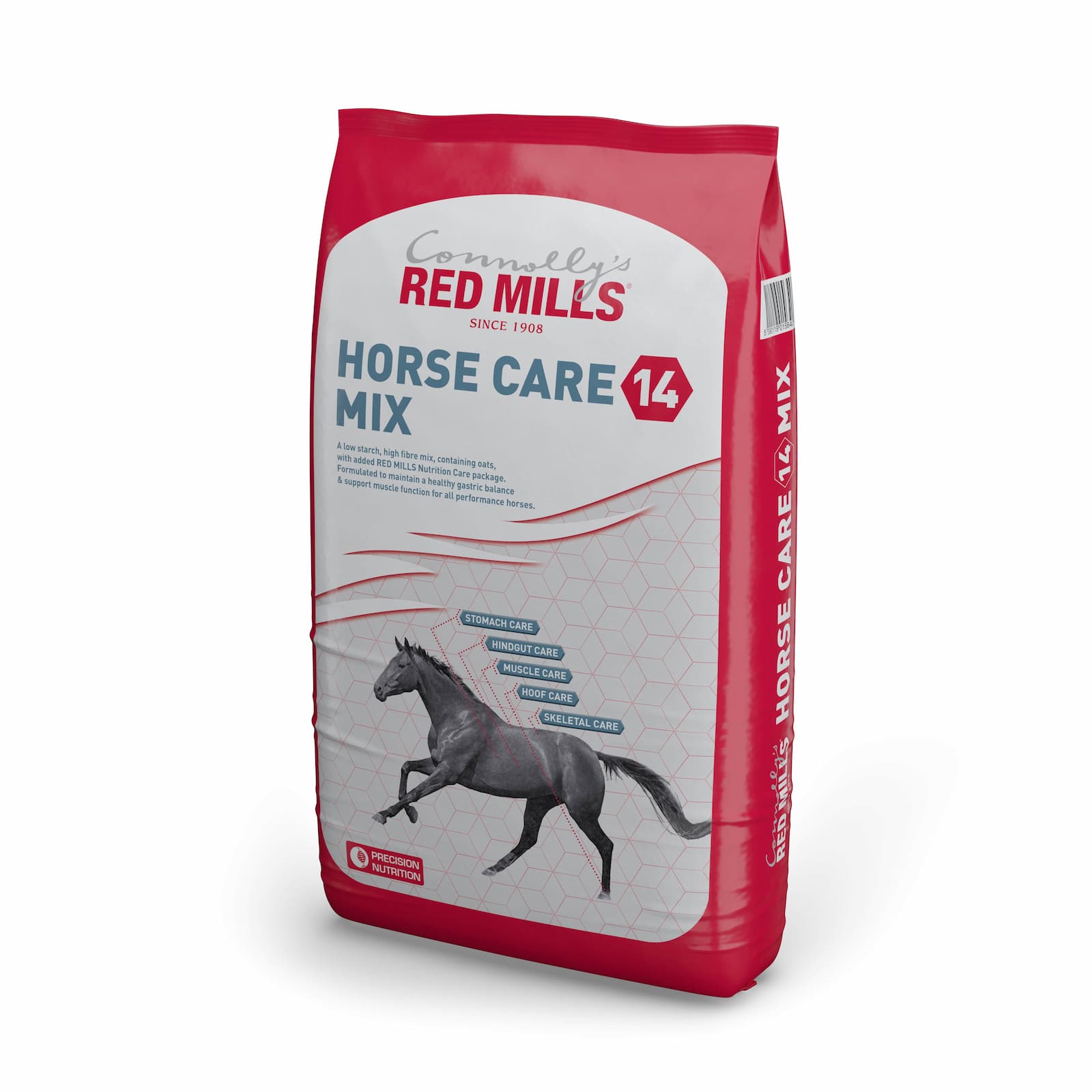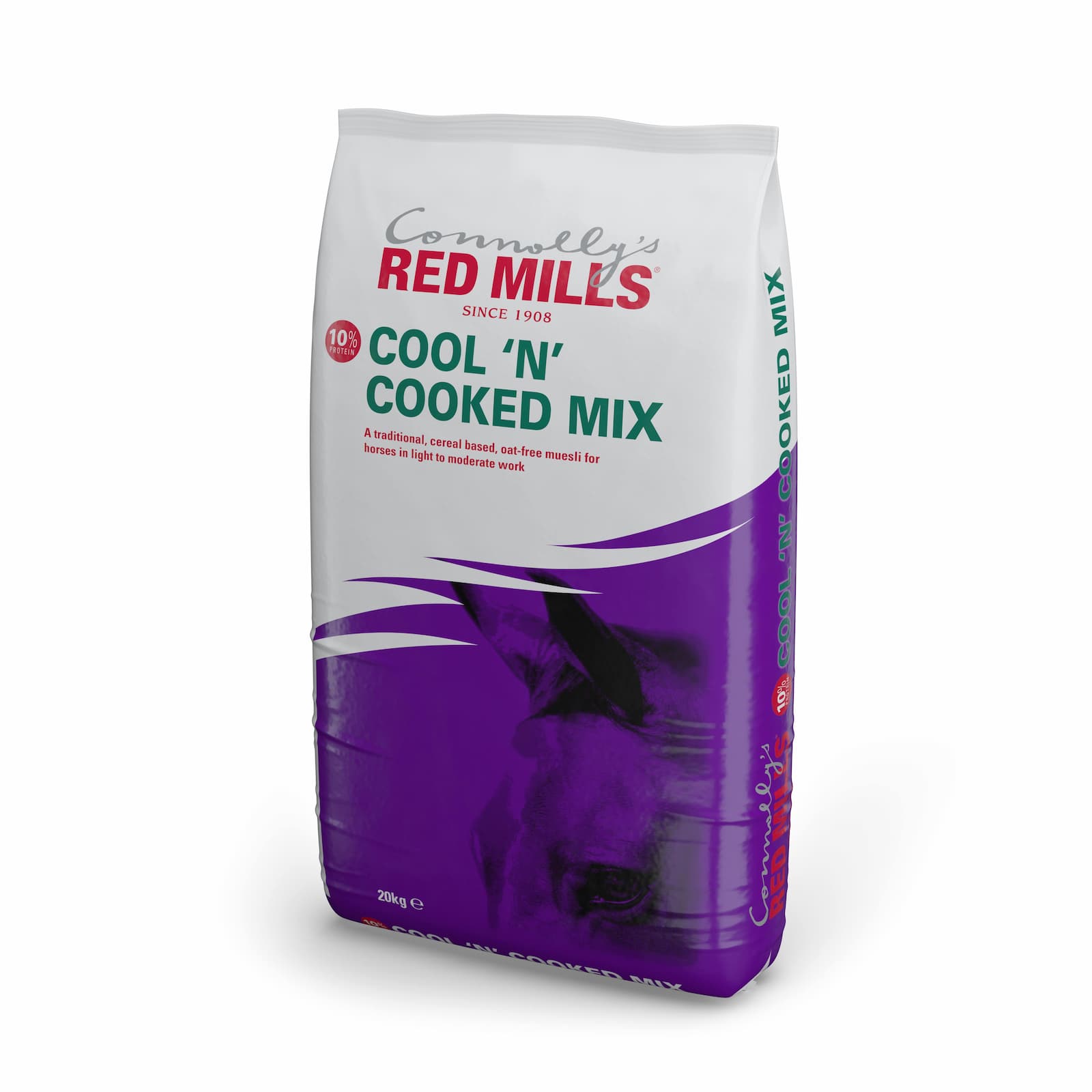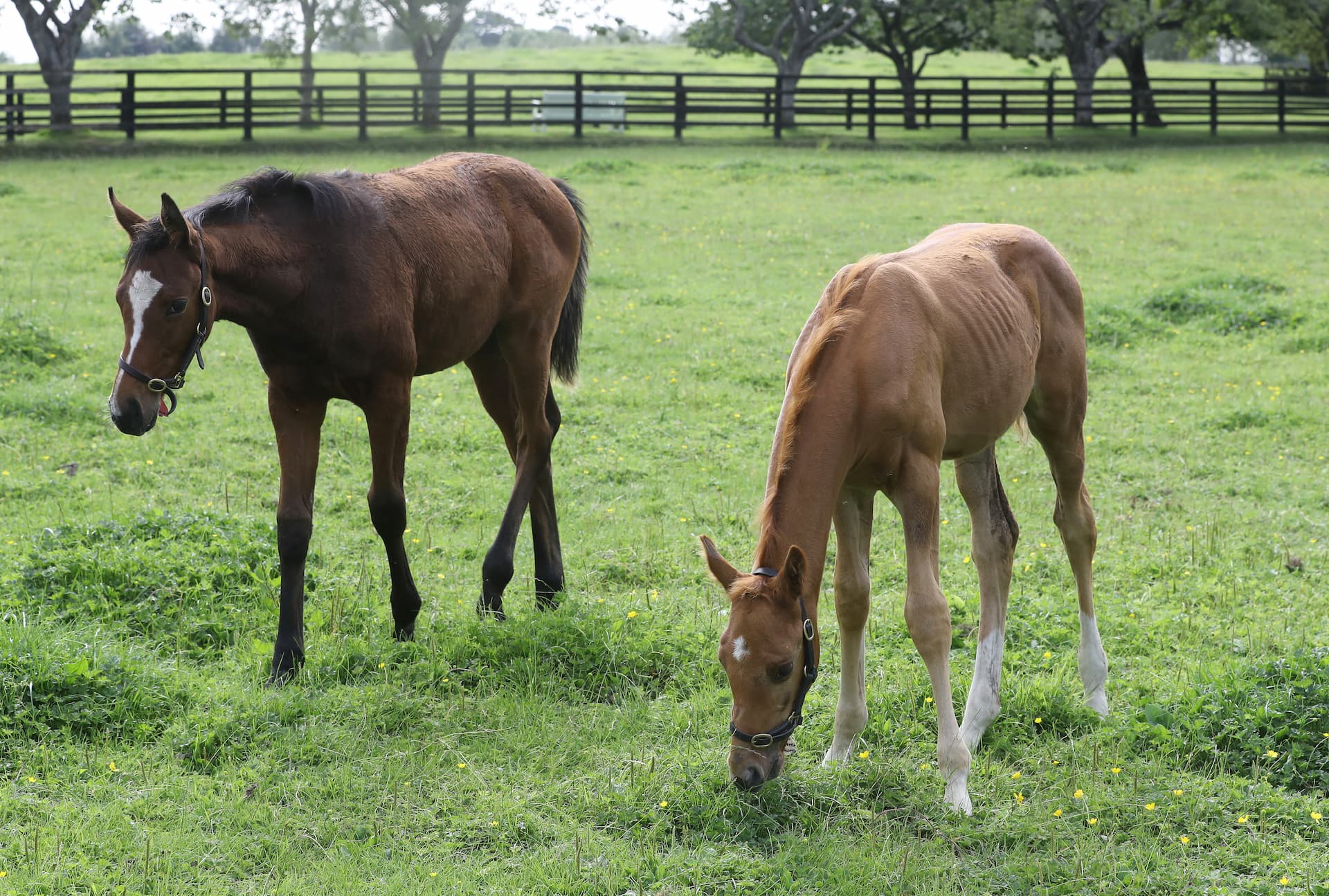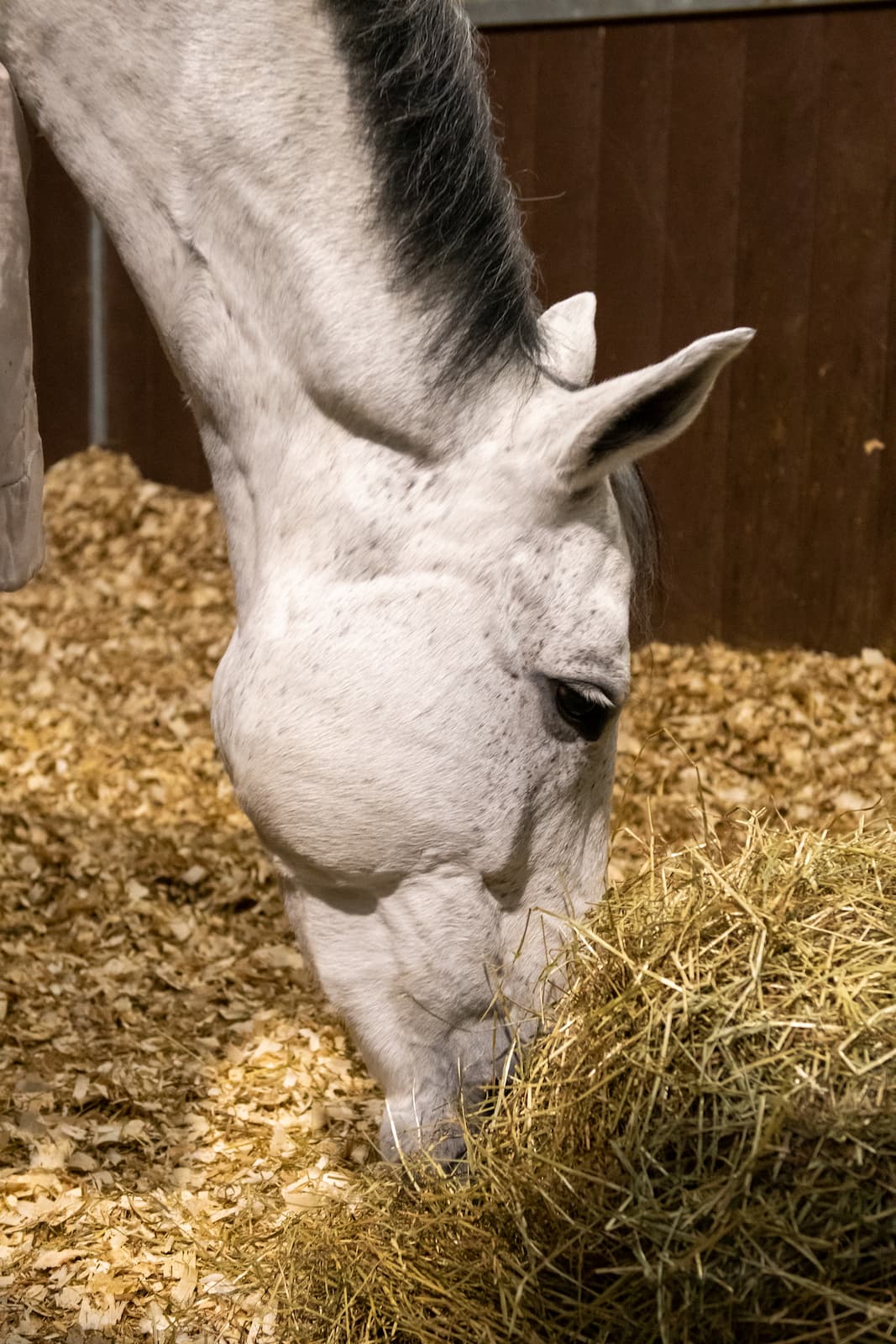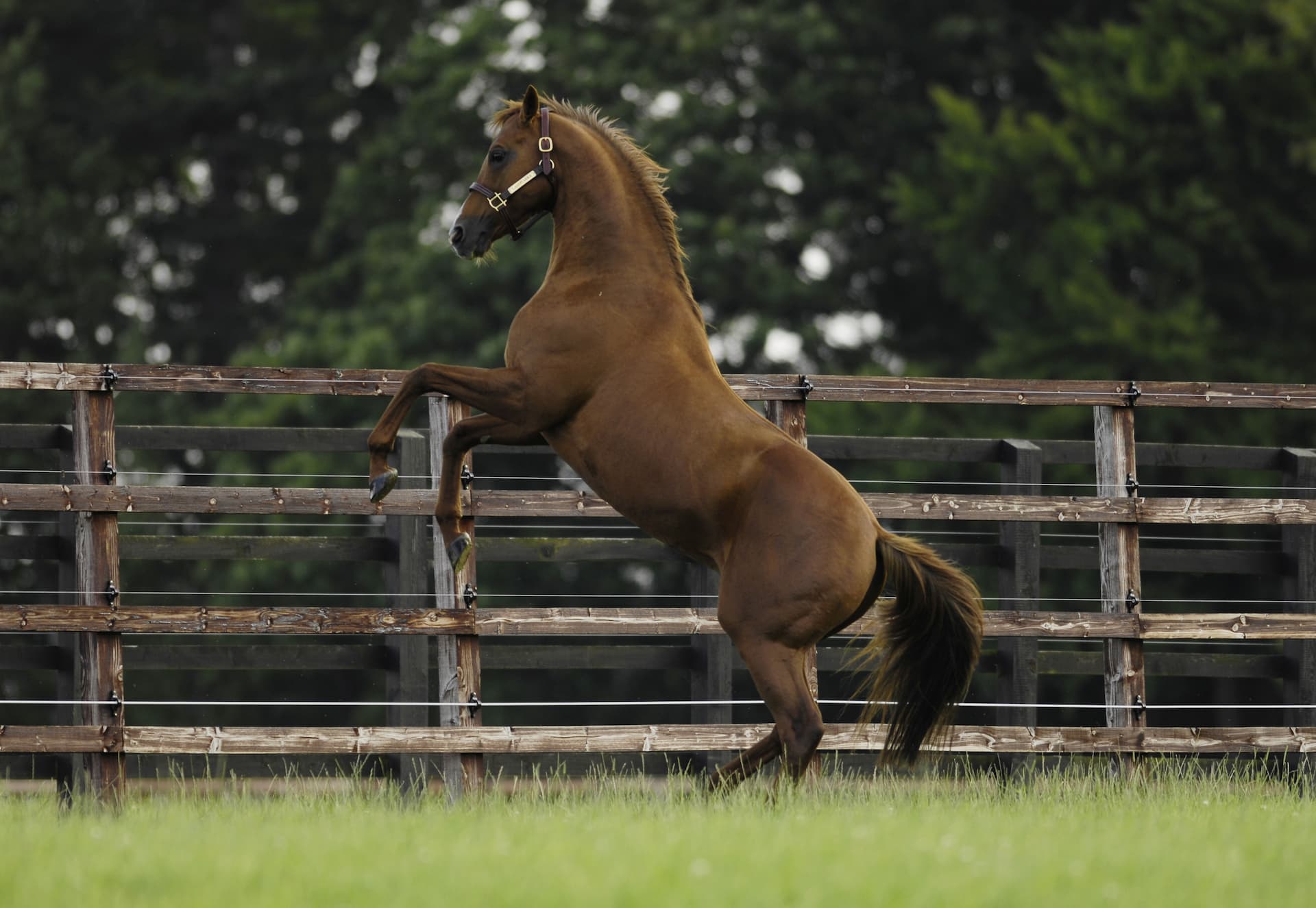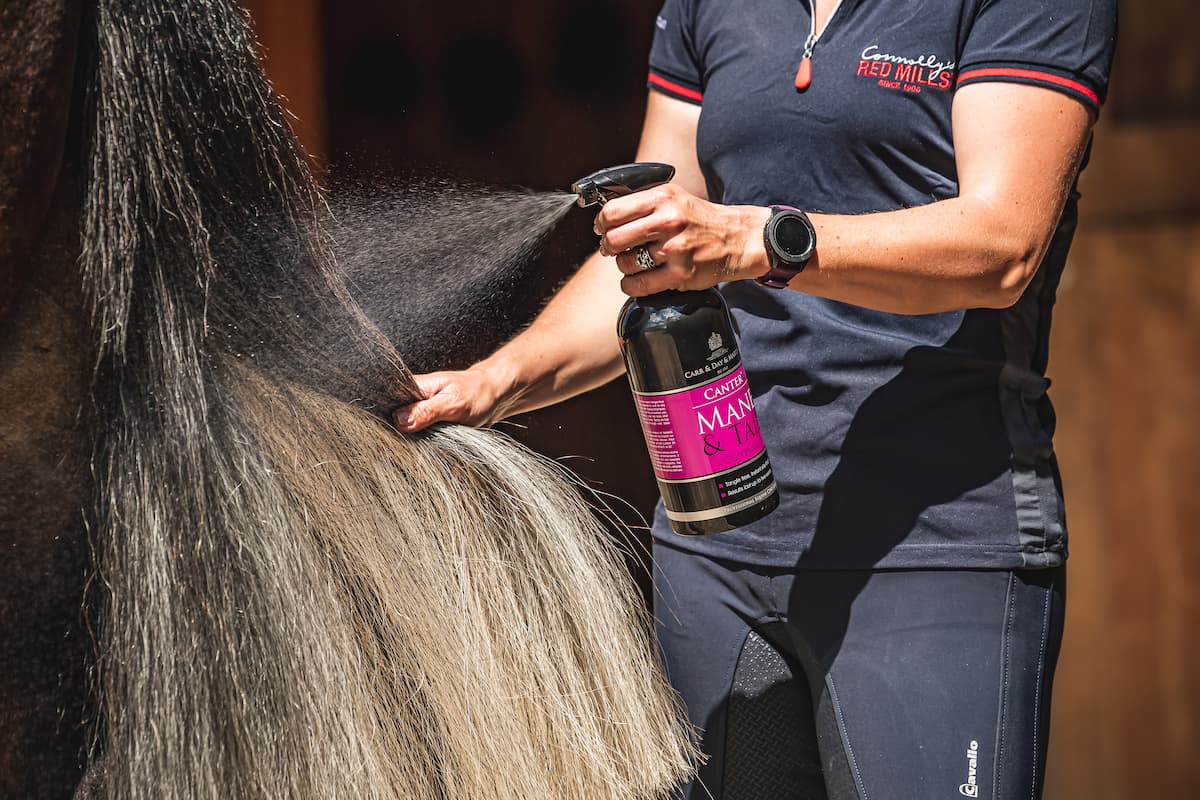Jun, 2020
Many horses are strong-willed and mentally tough, but others can be nervous and tense. Although diet alone cannot change your horse’s actual temperament, it can have a significant effect on their behaviour. This article will focus on how we can optimise the diet of excitable, anxious or ‘stressy’ horses.
Protein is an important nutrient for all horses and supplies the building blocks for growth, cell repair and muscle development. Contrary to popular belief, it is not responsible for excitability or nervousness in the horse. Although protein can be utilised as a form of energy for the horse, it is only used as a very last resort source (e.g. a starving horse will begin to break down their body’s own protein reserves [i.e. muscle] to use as energy in order to survive).
The misconception that protein causes excitability stems from the fact that traditionally high protein feeds are often also high in starch. However, we now know that it is the starch, rather than the protein, that can exacerbate excitability. Limiting protein intake will not reduce excitability and may in fact result in issues such as lack of muscle development, a weakened immune system and poor hoof and hair quality.
Primary energy sources for the horse come from starch and sugar, fibre and oil. Starch and sugars are rapidly broken down by the horse into glucose and absorbed into the bloodstream via the small intestine. They provide the horse with a rush of fuel known as ‘fast-release’ energy. This type of energy can be very useful for certain horse types such as those that tend to be very laid-back. However, for a ‘fizzy’ horse, high intakes of ‘fast-release’ energy may result in them becoming difficult to handle or ride.
‘Fizzy’ individuals will benefit from a diet that is lower in starch and sugar and instead uses digestible fibres and oil as alternative energy sources. Fibre is a source of ‘slow-release’ energy, fermented gradually in the horse’s hindgut and so the energy is released over a long period of time. Likewise, oil is an excellent source of ‘non-heating’ energy and is a particularly useful source of calories when feeding a high-spirited horse.
Several micronutrients are important for the correct functioning of the horse’s nervous system and low levels of certain vitamins and minerals may be linked to anxiety, including:
| Magnesium: This is an essential mineral required for muscle relaxation, regulation of cardiac rhythm and nerve signalling. Low magnesium intakes can be associated with increased stress and nervousness. |
| B-Vitamins: Vitamins B1 ‘Thiamine’, B6 ‘Pyridoxine’ and B12 ‘Cyanocobalamin’ play important roles in energy regulation, the transmission of nervous impulses and the conversion of tryptophan to serotonin. Therefore, deficiencies in B-vitamins may contribute to excitability in some horses. |
| L-Tryptophan: This is an essential amino acid and is a precursor to the neurotransmitter serotonin, also known as “the happy hormone”. Serotonin is required on a daily basis by the brain for normal function and is particularly associated with the inhibition of aggression, fear or stress. |
Forage
Whether you have a racehorse in training, broodmare or leisure horses, the most important part of your horses’ diet is forage (i.e. grass, hay or haylage). Ideally, forage should be fed on a free choice basis allowing your horse access to roughage as needed. However, if restricted, the total forage intake should be no less than 1½ % of bodyweight per day on a dry matter basis (e.g. 7½ kg of forage ‘dry weight’ per day for a 500 kg horses). Feeding less than this amount will compromise your horse’s health; increasing the risk of gastric ulcers, stereotypic behaviours, and hindgut disturbances – all of which have the potential to exacerbate unwanted behaviours.
Grass
Grass is an important forage source for many horses. However, it is important to remember that grass can be high in sugar, particularly at certain times of year (e.g. spring and autumn). During the daytime grass produces sugar using a process called photosynthesis, the plant then uses this sugar to fuel growth and seed production. During the night, when there is no light available, sugar levels tend to decrease and are usually at their lowest the following morning. However, this can vary day-to-day depending on environmental conditions. For example, the sugar content of grass will be high on frosty, sunny mornings as the grass will been unable to use it during the night due to low overnight temperatures. Therefore, it is difficult to give concrete guidelines on when is the best time to turn out. Whilst sugar levels in pasture must be considered, the opportunity to spend some time in the paddock relaxing or letting off steam are of equal importance for horses prone to anxious, stress or excitable behavior.
Hay & Haylage
The nutritional value of hay will largely depend on when it was cut. Late-cut hay tends to have lower digestible energy, starch and sugar levels than that of early-cut hay. This makes it a popular choice for many horses prone to ‘hotting up’. The hay can also be soaked, if necessary, to further reduce its sugar content.
Haylage that has undergone extensive fermentation will also be low in sugar, as the sugar is used up during this process. However, most haylage nowadays tends to be relatively dry which limits fermentation, meaning that more sugar remains. In general, a high fibre haylage will be more suitable for anxious, sharp individuals than an early-cut ryegrass haylage.
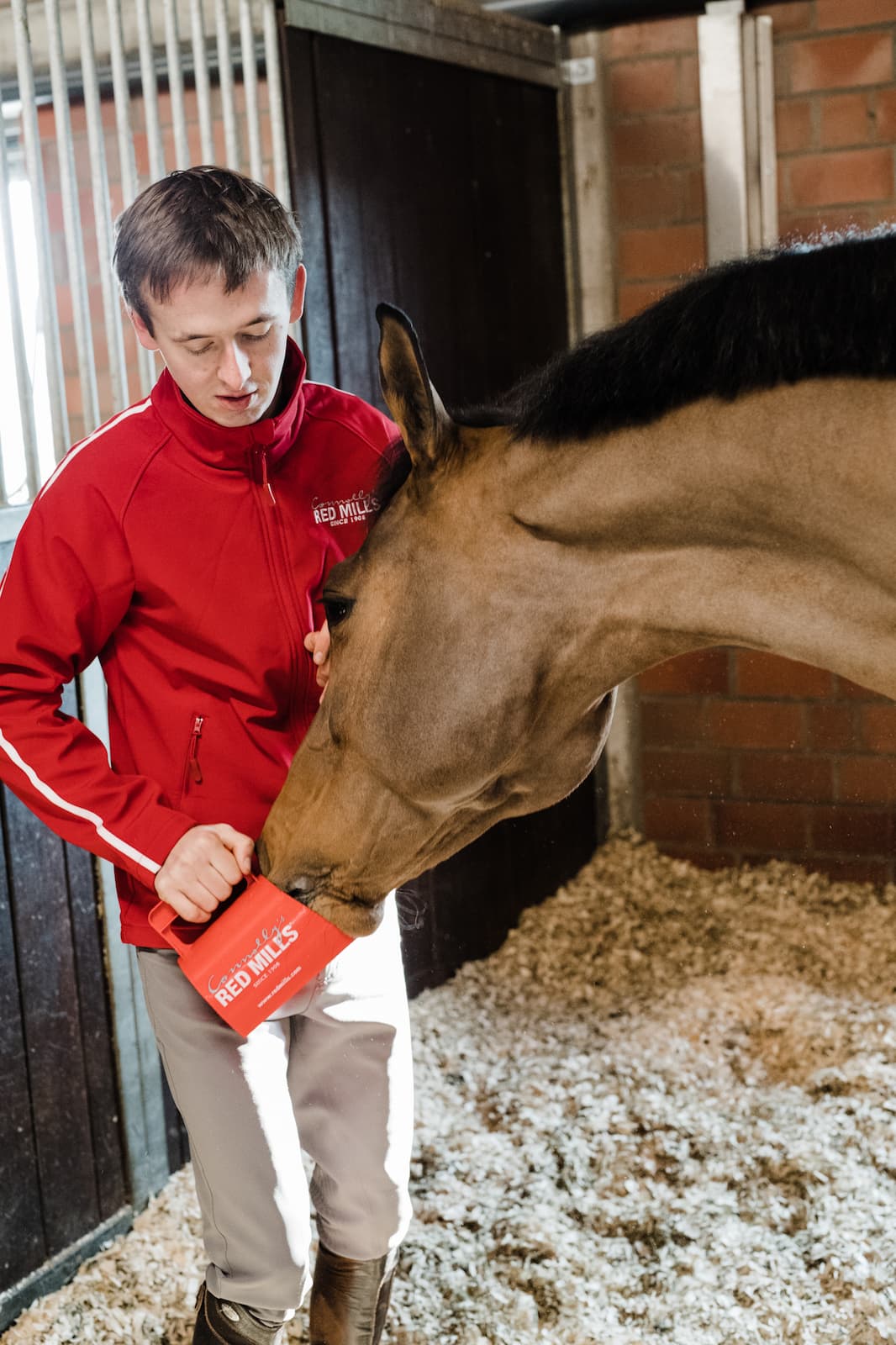
When choosing a suitable hard feed for a horse prone to being overly excitable or anxious, look for a feed that contains controlled levels of starch and sugar. Luckily, there are a number of feeds in the Connolly’s RED MILLS range that fit this criteria.
For horses at rest or in very light work that need a calorie-controlled diet Connolly’s RED MILLS PerformaCare Balancer is ideal. This nutrient-dense balancer contains optimal levels of micronutrients in a low intake feed. It is ‘non-heating’ and completely cereal-grain free with a very low starch content of just 3%. PerformaCare Balancer contains our unique Care Package, which includes pure protected yeast and two prebiotics (MOS and FOS) to aid hindgut health and help maximise forage digestibility. In addition, a natural long-lasting gastric acid buffer is also added to help support a healthy stomach.
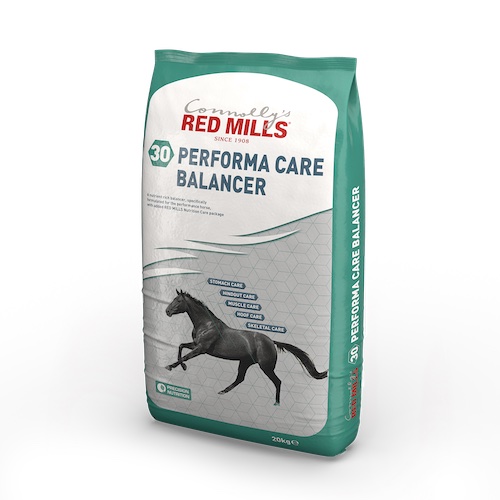
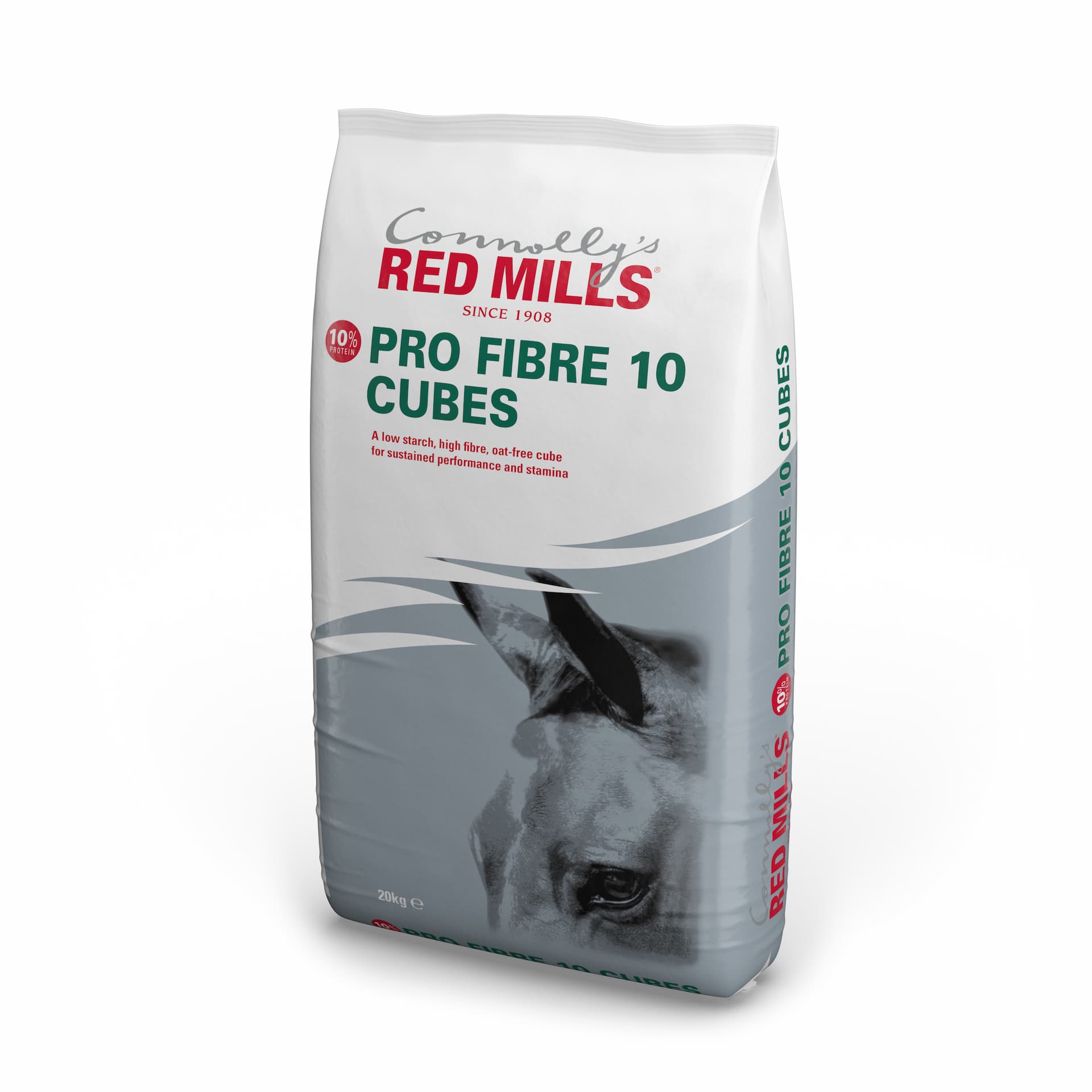
For horses in light to moderate work, we recommend our Pro Fibre 10 Cubes. The ingredients in Pro Fibre 10 Cubes have been carefully selected to provide ‘non-heating’, slow release energy in a low starch, oat-free format. Pro Fibre 10 Cubes include our unique Pro Balance Vitamin & Mineral pack, which provide superior levels of essential vitamins and minerals when compared to most traditional high fibre cubes. However, if you are concerned about gastric ulcers or digestive upsets, both of which are more common in anxious or excitable individuals, we recommend our Horse Care 10 Cubes or Mix which, as well as being low starch and oat-free, also contain our unique Care Package.
For horses in moderate to hard levels of work, we recommend Pro Fibre 13 Cubes or Horse Care 14 Cubes or Mix. Both these feeds are low in starch and high in fibre but contain an oat-inclusion to help fuel intense exercise. Horse Care 14 Cubes have the additional benefit of containing our unique Care Package.
Unfortunately, many excitable horses are poor doers as they tend to burn off more energy than laid-back individuals. Connolly’s RED MILLS Conditioning 14 Cubes make it possible to condition these horses without jeopardising their temperaments. They have been formulated to provide calories from a balance of oil, high digestible fibre, and very low levels of starch to maximise condition without excitable behaviour. Conditioning 14 Cubes also contain excellent levels of quality protein to support muscle development and topline, as well as our unique Pro Vitamin & Mineral pack, which includes magnesium and B-vitamins, to help support normal nerve and muscle function.
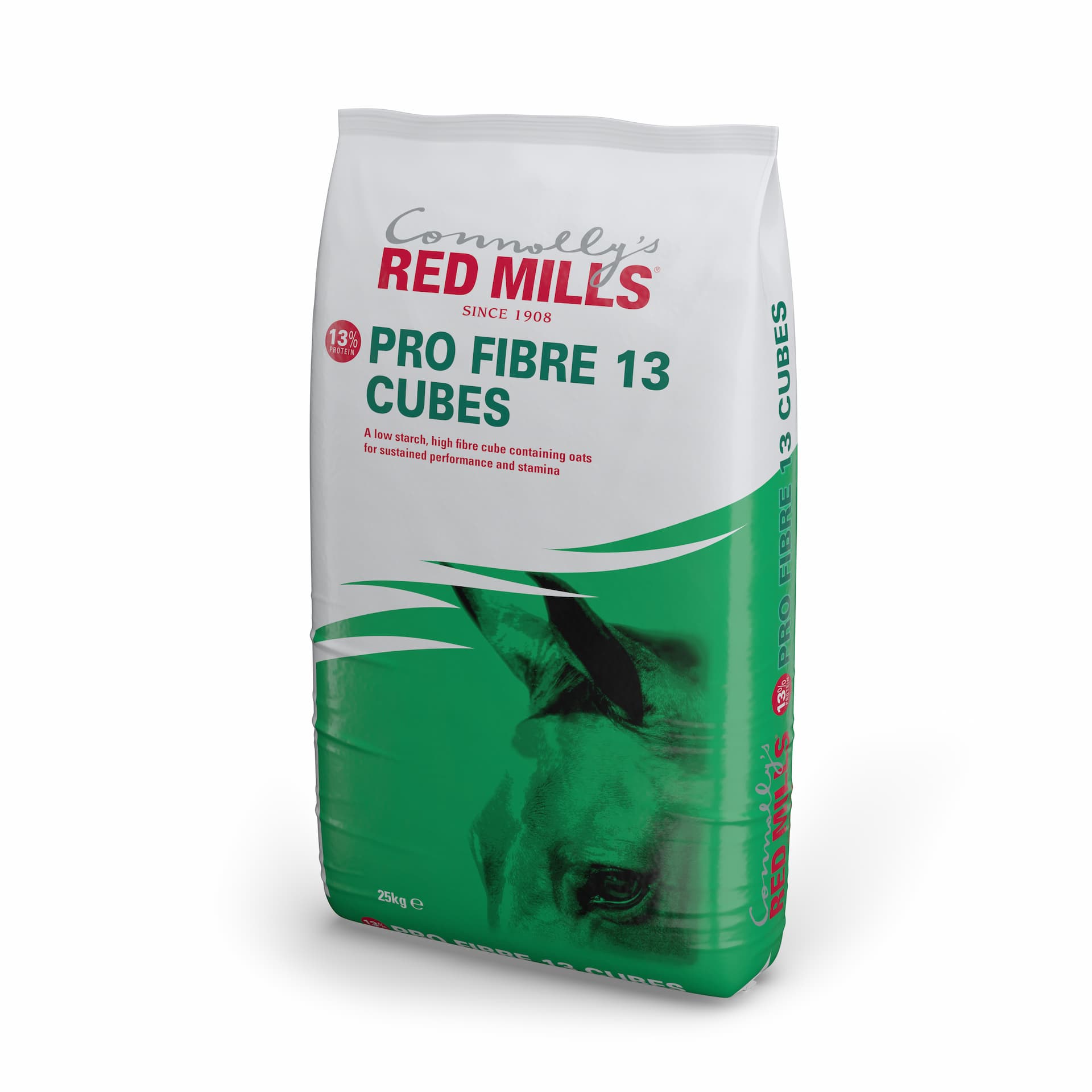
If you have already made changes to your horse’s diet and are managing their exercise levels and environment to help minimize stress, anxiety or excitability then it may be worth considering a specific calming supplement. There are a high number of calmers on the market and it is important to note when making your choice that some supplements may contain herbs such as valerian, which is not suitable for horses competing under rules. In addition, calmers based on one single ingredient (e.g. magnesium), may be less likely to be of benefit unless your horse actually has low magnesium levels. Therefore, we recommend using Foran Equine Nutri-Calm Syrup or Gel, which contains a combination of magnesium, B-vitamins and L Tryptophan.
Providing an excitable or anxious horse with the energy or calories they need, without exacerbating an already overly exuberant attitude, can be challenging. However, it is possible to promote a more even temperament by keeping the starch and sugar levels low and instead providing energy (calories) from ‘slow-release’ energy sources including digestible super fibres (e.g. beet pulp and alfalfa meal) and oil (e.g. soya oil). A calming supplement such as Foran Equine Nutri-Calm Syrup or Gel can also be enormously beneficial for many individuals.
Related Products
Contact our sales team via WhatsApp or email

Nicolas Gaumerais
Group Commercial Manager GCC Region
Based in the UAE, Nicolas Gaumerais is the Commercial Manager of Connolly's RED MILLS Group which includes Connolly's RED MILLS horse feeds and Foran Equine supplements sold in the GCC region. Nicholas regularly travels across the Gulf to meet customers.

Dominic Bligh
Group Commercial and Technical Executive GCC Region
Alternatively, reach out to Dominic Bligh who offers nutritional & technical support for Connolly's REDMILLS Feed and Foran Equine supplements. Dominic is also the Commercial Manager for Foran Equine Supplements. He regularly visits client's stables in the Middle East to advise on bespoke feeding programmes.






